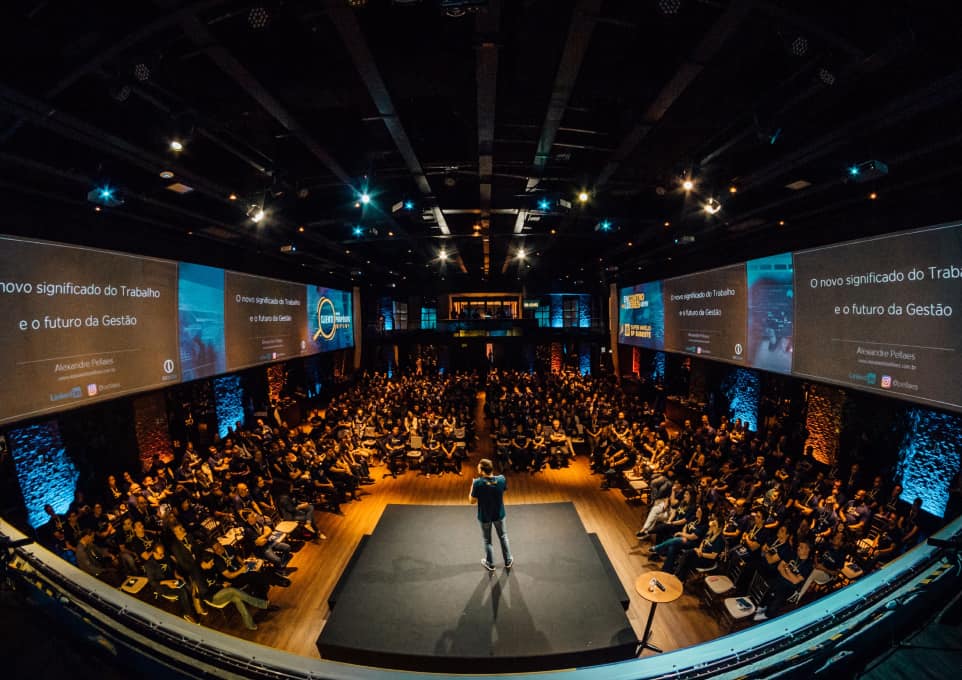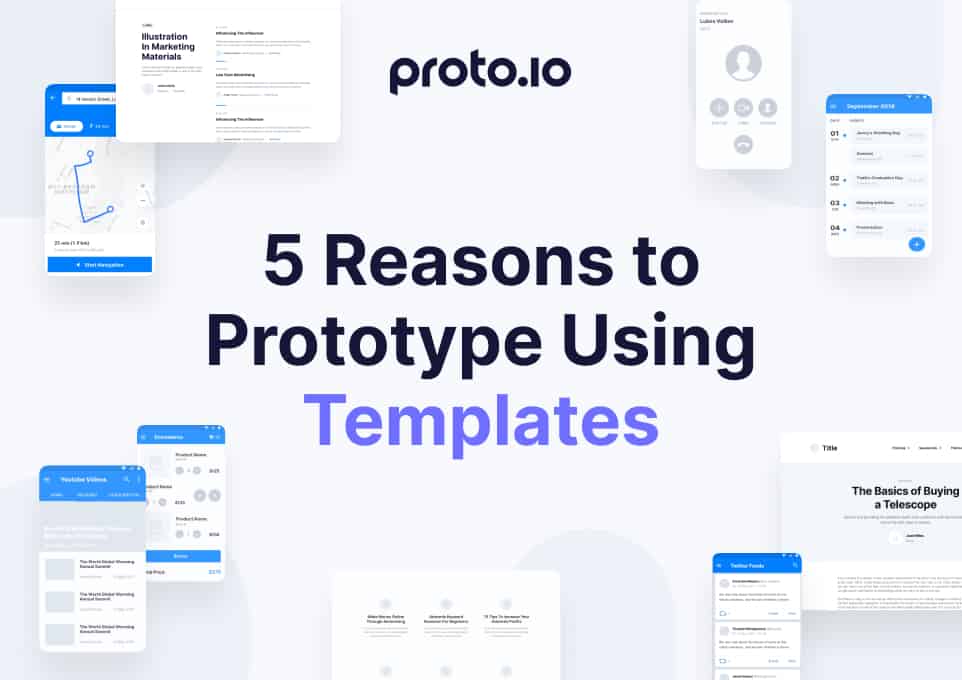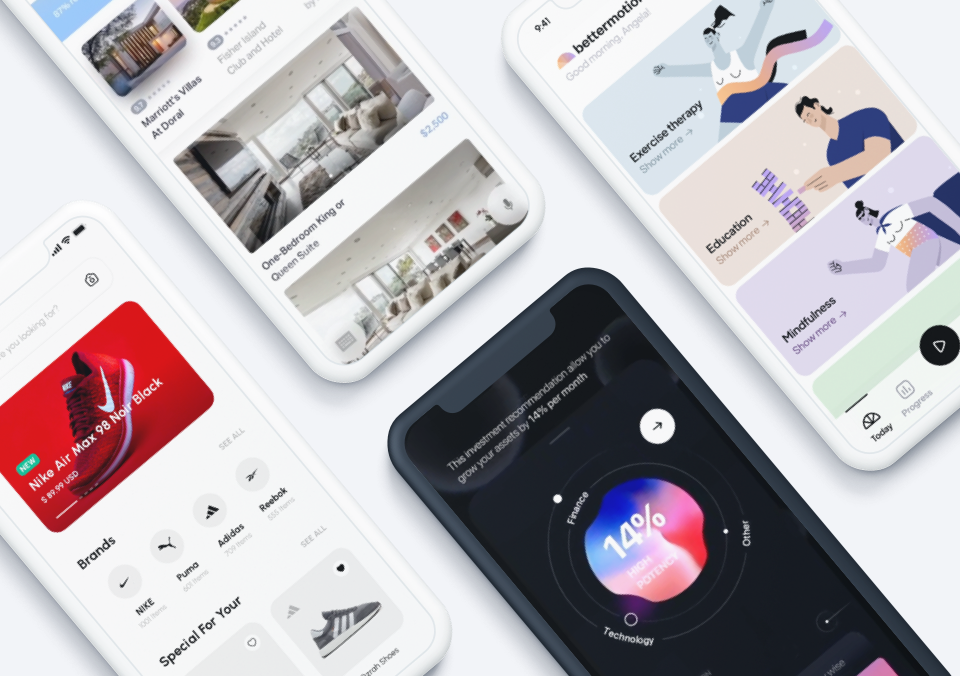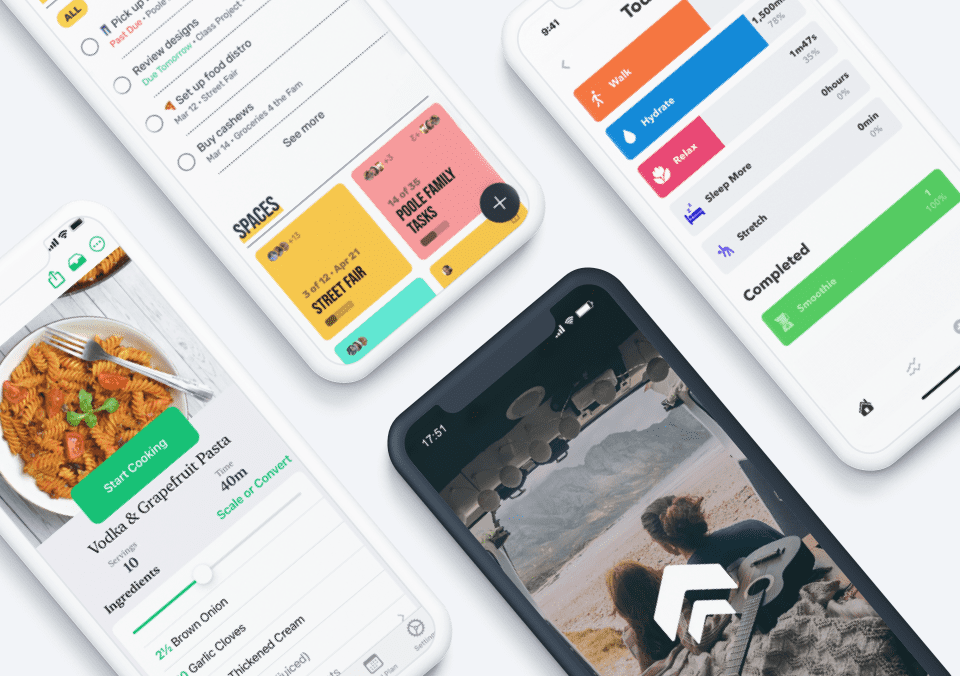TED (Technology, Education, Design) is well known across the globe. Founded in 1984 as a one-off event, the conference series has grown massively and now holds talks around the world on many scientific, cultural and academic topics. The TED Talks available for viewing online have been heard by many. It has become a leading platform for the global sharing of ideas. We don’t doubt that you have already seen some of the most popular TED Talks for designers, such as “3 Ways Good Design Makes You Happy” by Don Norman or “How Giant Websites Design For You (and a Billion Others Too)” by Margaret Gould Stewart. As such, we offer you instead 10 unexpectedly insightful TED Talks for designers that focus on topics not directly related to design, but from which designers can learn a great deal.
1. A Radical Experiment in Empathy by Sam Richards
The ultimate goal of interaction designers and UX designers is to always put the user’s needs first. It requires a thorough understanding of the users and the social contexts in which they interact with products. The key to designing for users is empathy. Through a powerful and emotive narrative, sociologist Sam Richards challenges the audience to step out of their worlds and into the shoes of another person. This is one of the most inspiring TED Talks for designers looking to tap into the power of empathy.
2. A Futuristic Vision of the Age of Holograms by Alex Kipman
Virtual and augmented reality is an exciting new area for developers, designers and entrepreneurs. The two-dimensional limitations of our current digital world are finally crumbling. We can expect a whole different experience of interacting with the world in the near future and the need for designers who are ready to break free from the constraints of screens will rise. This marvellous demonstration of the HoloLens by Alex Kipman is bound to get you excited for the future of digital. Along with Meron Gribetz’ “A Glimpse of the Future Through an Augmented Reality Headset”, these are TED Talks for designers who are interested in getting into VR and AR.
3. Making the World Accessible by Dave Power
As exciting as the advancement of technology is to many of us, we tend to gloss over the fact that it is biased. There is still a group of users that we are constantly neglecting — those who require assistive technology to navigate the digital world. At Proto.io, we strongly believe in the basic tenet of accessibility for mobile UI design. We also believe that designers can play a big role in helping to make the digital world friendlier for the visually impaired, such as through the use of sound in design. There are many good TED Talks for designers to learn the importance of accessibility but this talk by Dave Power is filled with practical insights all designers need to know about.
4. The Surprising Habits of Original Thinkers by Adam Grant
Does the early bird always get the worm, as the saying goes? Not when it comes to creativity, according to psychologist Adam Grant, in light of his many years of studying the dynamics of success and productivity in the workplace. The topic of how to boost one’s creativity has been central to many TED Talks for designers and other professionals in the creative industry. But this talk might just be the first to endorse procrastination as a virtue for creativity. A must-watch for designers who can never understand why they always seem to be putting in overtime on the last couple days of a design sprint and who want to know why that’s totally ok.
5. How We’re Teaching Computers to Understand Pictures by Fei-Fei Li
“So in other words, collectively as a society, we’re very much blind, because our smartest machines are still blind,” claims Fei-Fei Li, the Director of Stanford’s Artificial Intelligence Lab and Vision Lab and expert on computer vision. Although not directly related to design, machine learning is a fascinating topic among all possible unexpectedly insightful TED Talks for designers. After all, we’re perhaps not too far from a future in which computers can recognize elements in design prototypes and turn them into fully functional apps. Those interested in visual culture in the digital world can learn a great deal from this thrilling talk on image recognition and how far along it has come.
6. Can We Create New Sense for Humans? by David Eagleman
Neuroscientist David Eagleman walks us through how our experience of reality is very much constrained by our biology, leading us to question our perception of objective reality. Essentially, it is up to the brain to interpret the signals it receives from our senses. But what if we could alter the senses? Or add a new one? With deeper understanding of neuroscience, sensory substitution and addition could very well be possible. This talk goes beyond the realm of VR and AR to the potential of extended embodied experiences. As design is also concerned with the sensory experiences of humans, this makes for one of more interesting TED Talks for designers anxious to start contemplating about designing for the future.
7. Using Nature’s Genius in Architecture by Michael Pawlyn
Sustainability isn’t just an important topic for the likes of Greenpeace and the World Wildlife Foundation. It is a fundamental concern for every person who wants our planet to continue thriving for future generations. Designers can play an influential role in the effort towards a more sustainable future. With the rising importance of design thinking, more designers can incorporate sustainability in their product’s solutions to meet users’ needs. This powerful talk by Michael Pawlyn demonstrates the viability of using nature as a design tool and provides many examples of how biomimicry can transform resource usage from a linear to a closed-loop model, making our process more efficient.
8. The Single Biggest Reason Why Startups Succeed by Bill Gross
Are you bursting with unique business ideas? Thinking about starting your own company? No doubt, there are tons of great TED Talks for designers looking to embark on the entrepreneur path. But this talk by Bill Gross might just surprise you. From a bunch of data gathered from hundreds of companies, Gross set out to determine the main factor as to why startups fail or succeed. The outcome surprised Gross himself and we must say, it is a good consideration to have in mind for aspiring Founders looking to launch a product anytime soon.
9. How to Manage for Collective Creativity by Linda Hill
Leading a team of creative designers and developers can be challenging and requires a certain savviness to better support the team. But why do we work so hard to figure out how to lead creatives? Because innovation depends on it. Despite popular belief, innovation is not about solo genius. It is about collective genius. Harvard professor Linda Hill used the methods of anthropology to study some of the world’s most creative companies in order to get to the bottom of how some companies can innovate time and again. Many designers look upon Steve Jobs as the ultimate designer/leader. But if you’re looking for a different brand of leadership, this is one good example of TED Talks for designers who aspire to become better leaders.
10. The Best Computer Interface? Maybe… Your Hands by James Patten
Creative professionals do most of their work on the computers. Our creative expression is very much limited to the boxed screen. But does it really make sense since we live in a material world? Interaction designer James Patten walks us through his vision of a more physical means to bring the power of the computer into our hands. Imagine being able to adjust the settings on your computer with a physical handle, one that responds to your movement and provides physical feedback. Unlike previously mentioned VR and AR TED Talks for designers, this talk focuses on motion and physical interactions between human and computers.
At Proto.io, we take education and continuous learning seriously. If you can think of other unexpectedly insightful TED Talks for designers, feel free to share by tweeting us @Protoio.





